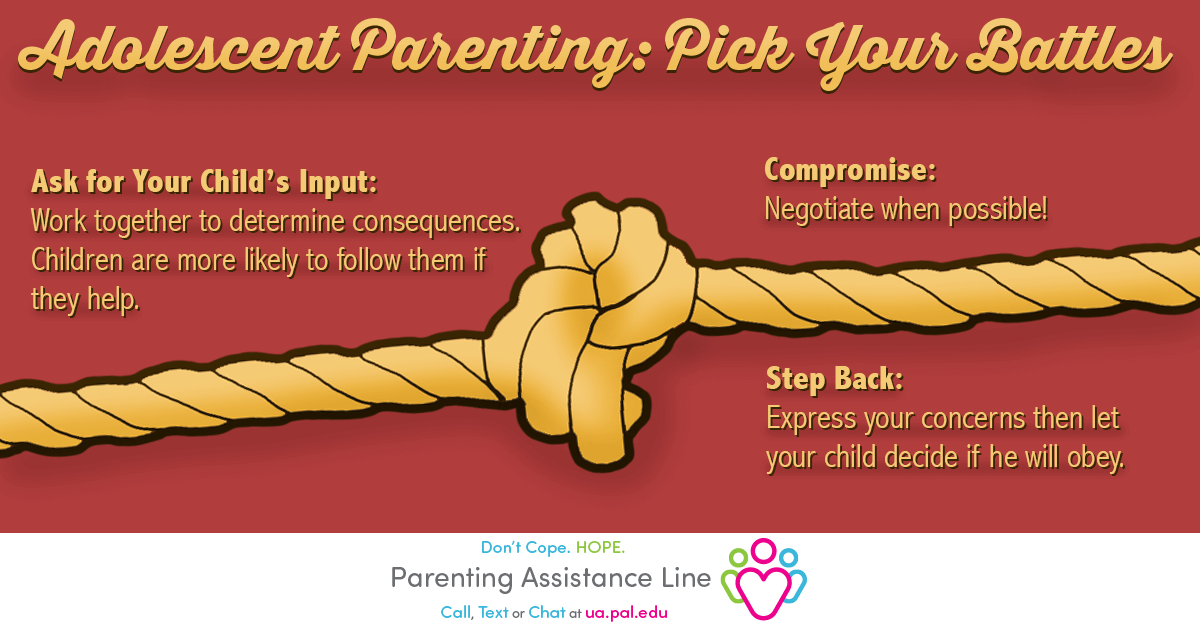Power struggles almost seem to be a way of life when you’re parenting an adolescent. Teens are in the stage of development that is designed to resist limits. Meanwhile, adults are committed to enforcing limits. It’s a natural conflict that leads to battles of control. It is best to strive for a sense of balance. You just can’t win them all, and by being determined to, you set yourself and your teen up for some miserable days ahead.
- Decide what’s important: No parent has the stamina to fight every battle. Trying to do so will only result in frustration and a break down in the parent-teen relationship. Take time to sit down with your spouse or co-parent and decide the values that are most important to your family. Is it respect and consideration for others? Perhaps, you feel honesty is at the forefront. Will you not tolerate a snarky attitude? Try to save your energy for the important stuff.
- Ask for your child’s input: Many parents are surprised to find out their adolescents are even stricter at rule making and consequences then they are! Rules are more likely to be followed if the child has some input in their creation.
- Compromise: Don’t make an issue out of everything and don’t overcomplicate the rules. Issues that do not affect the child’s spiritual, emotional or physical wellbeing can certainly be negotiated. For example, how clean their room is kept, their hairstyle and clothing, curfew for different occasions, chores etc. are perfect areas to allow a little freedom. Of course, issues of safety are NEVER up for debate.
- Projecting: We all had tough experiences as a teenager. I could be that you didn’t feel like you fit in, or made some bad choices that affected your parental relationships, or perhaps you just didn’t do well academically. It is vital to avoid projecting your own insecurities or mistakes onto your children. In doing so, you may deny your child freedoms he actually deserves. Examine your own past and recognize the battles you choose based on emotions stemming from your own teen years.
- Step back: Once you have decided on your expectations and communicated them clearly, it’s time to step back and let your child decide if he will obey or not. If he disobeys, enforce consequences and remind him that he chose the course. There is no need for anger. It is a teen’s right to test the limits and a parent’s job to make sure the boundaries are secure.







